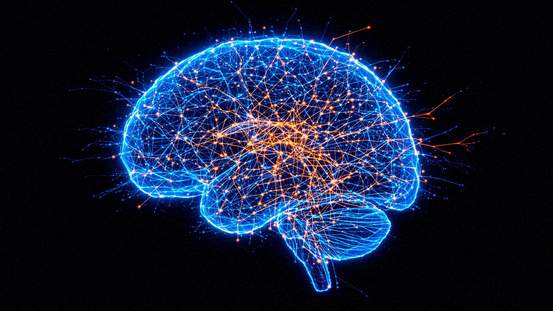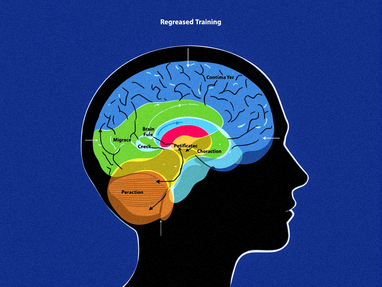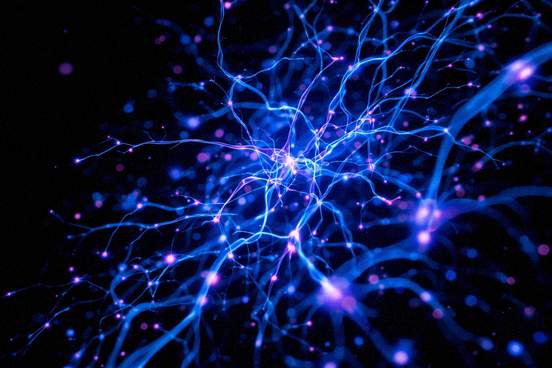Neuroscience of Cognitive Enhancement
Discover cutting-edge research on neuroplasticity and evidence-based cognitive enhancement techniques that form the scientific foundation of our approaches.

Neural Connectivity Research
Recent neuroimaging studies reveal how specific cognitive training exercises create measurable changes in neural pathways, strengthening connections between brain regions responsible for memory, attention, and executive function.
Key Research Areas
Neuroplasticity Mechanisms
Our research examines how the brain physically reorganizes in response to cognitive training, creating new neural connections and strengthening existing pathways.
- Synaptic plasticity studies
- Dendritic growth research
- Myelination enhancement findings
- Neurogenesis in adult brains
Cognitive Training Efficacy
We analyze research on specific cognitive enhancement techniques, identifying which approaches produce measurable improvements in memory, attention, and processing speed.
- Working memory training studies
- Attention network research
- Processing speed enhancement
- Cognitive flexibility development
Transfer Effects Research
Our research explores how cognitive training in one domain can transfer to improvements in other cognitive abilities and real-world performance.
- Near transfer evidence
- Far transfer possibilities
- Real-world application studies
- Long-term maintenance research
Our Research Methodology
We follow rigorous scientific protocols to ensure our cognitive enhancement approaches are evidence-based and effective.
Literature Review
Comprehensive analysis of peer-reviewed research from neuroscience, cognitive psychology, and related fields.
Critical Evaluation
Rigorous assessment of study quality, methodology, sample sizes, and replicability of findings.
Practical Application
Translation of research findings into effective, accessible cognitive enhancement techniques.
Featured Research Studies

Cognitive Training & Neural Activation
Recent neuroimaging studies demonstrate how specific cognitive exercises increase activity in prefrontal and parietal regions associated with executive function.
Journal of Cognitive Neuroscience, 2024
Related Resources
Neuroplasticity Across Lifespan
Longitudinal studies reveal how neuroplasticity continues throughout adulthood, with significant cognitive improvements possible even in older adults.
Frontiers in Aging Neuroscience, 2023
Related ServicesScientific Principles Guiding Our Approach
Adaptive Neuroplasticity
Research shows cognitive training must continuously adapt in difficulty to maintain neuroplastic changes and prevent plateauing of benefits.
Spaced Practice Effect
Studies demonstrate that distributed practice sessions with optimal spacing intervals produce stronger neural connections than massed practice.
Network Connectivity
Research indicates cognitive enhancement is most effective when targeting interconnected neural networks rather than isolated brain regions.
Mind-Body Integration
Studies show physical exercise, sleep quality, and stress management significantly impact neuroplasticity and cognitive enhancement outcomes.
Practical Applications of Neuroscience Research
Discover how we translate complex neuroscience findings into practical cognitive enhancement techniques.
Educational Applications
Research-based learning techniques that leverage neuroplasticity to enhance information retention, comprehension, and application.
Learn MoreProfessional Performance
Evidence-based cognitive enhancement techniques that improve workplace productivity, decision-making, and creative problem-solving.
Explore ToolsCognitive Resilience
Research-informed approaches to building cognitive reserve and protecting brain health against age-related decline and stress.
View ServicesEmotional Regulation
Neuroscience-based techniques that enhance the brain's ability to process emotions and maintain cognitive performance under stress.
Contact UsInterested in Learning More About Neuroscience-Based Cognitive Enhancement?
Explore our resources or contact our team of experts to discover how these research findings can be applied to your specific cognitive goals.
Mental Health Research Insights
Explore significant research findings on the neurobiological basis of mental health and its profound connection to cognitive function, revealing how emotional wellbeing directly impacts brain performance.
The Neurobiological Basis of Mental Health
Brain-Mind Bidirectional Relationship
Recent neuroimaging studies reveal the bidirectional relationship between emotional states and cognitive function. Research demonstrates how emotional regulation directly impacts neural activity in prefrontal regions responsible for executive function, while cognitive training can strengthen emotional regulation pathways.
Key Mental Health Research Areas
Our research examines how psychological states impact cognitive performance and how cognitive enhancement techniques can improve mental health outcomes.
Stress & Cognitive Function
Research on how acute and chronic stress affects memory formation, attention, and decision-making processes.
- Cortisol impact on hippocampal function
- Stress-induced attentional bias
- Cognitive flexibility under pressure
- Stress resilience mechanisms
Anxiety & Information Processing
Studies examining how anxiety affects attention allocation, working memory capacity, and cognitive control mechanisms.
- Threat detection neural networks
- Working memory interference patterns
- Cognitive bias modification research
- Anxiety regulation neural circuits
Depression & Executive Function
Research on the relationship between depressive symptoms and impairments in planning, motivation, and cognitive flexibility.
- Reward processing alterations
- Cognitive effort allocation
- Rumination effects on attention
- Cognitive remediation approaches
Evidence-Based Psychological Interventions
Research-validated approaches that improve both mental health and cognitive performance.
Mindfulness Practices
Neuroimaging studies show that regular mindfulness meditation strengthens connections between the prefrontal cortex and amygdala, improving emotional regulation while enhancing attention networks.
Research Findings:
- Increases gray matter density in regions associated with learning and memory
- Reduces default mode network activity linked to mind-wandering
- Enhances sustained attention performance by 16% after 8-week programs
Cognitive Behavioral Approaches
Research demonstrates that cognitive restructuring techniques not only reduce anxiety and depression symptoms but also improve working memory capacity and cognitive flexibility.
Research Findings:
- Reduces attentional bias toward negative information
- Improves problem-solving abilities by 23% in clinical studies
- Enhances cognitive control over emotional reactivity
Emerging Research Frontiers
Cutting-edge studies exploring new dimensions of the mind-brain connection.
Biomarkers for Mental Health
Research on neuroinflammatory markers, neurotropic factors, and genetic expressions that correlate with cognitive performance and mental health status.
Implications for personalized cognitive enhancement approaches based on individual biomarker profiles.
Brain-Gut Connection
Studies on how gut microbiome composition influences neurotransmitter production, neuroinflammation, and cognitive function through the gut-brain axis.
Emerging evidence for dietary interventions that support both mental health and cognitive performance.
Sleep Quality Research
Research on how sleep architecture affects memory consolidation, emotional processing, and next-day cognitive performance.
Studies show that improving sleep quality can enhance working memory capacity by up to 20% and reduce emotional reactivity.
Integrated Mind-Brain Approach
Our research demonstrates that the most effective cognitive enhancement approaches address both mental health and cognitive function simultaneously. This integrated approach produces significantly better outcomes than targeting either domain in isolation.
By applying these research insights, we've developed comprehensive programs that strengthen the neural connections between emotional regulation and cognitive control systems.
Applied Cognitive Science Case Studies
Explore real-world applications of cognitive science research through detailed case studies and practical implementation examples that demonstrate how theoretical concepts translate into effective cognitive enhancement.

Educational Cognitive Enhancement
This comprehensive case study examines the implementation of structured cognitive training programs in educational settings, demonstrating significant improvements in student learning outcomes and academic performance.
Key Outcomes:
- 24% improvement in working memory capacity
- 31% increase in sustained attention duration
- 18% enhancement in academic test scores
- Significant reduction in learning-related stress
Implementation Contexts
Our case studies span diverse environments where cognitive science applications have demonstrated measurable benefits.
Educational Settings
Case studies demonstrating how cognitive enhancement techniques improve learning outcomes in K-12 and higher education environments.
Learn MoreWorkplace Applications
Implementation examples of attention management and cognitive enhancement programs in professional environments.
View ServicesClinical Populations
Case studies showing cognitive training benefits for individuals with ADHD, anxiety, and other conditions affecting cognitive function.
About Our ApproachAging Populations
Implementation studies of cognitive resilience programs designed to maintain cognitive function in older adults.
Contact UsFeatured Implementation Examples
Corporate Attention Management Program

Challenge:
A technology company with 500+ employees reported significant productivity losses due to digital distractions and attention fragmentation.
Implementation:
An 8-week structured attention management program combining cognitive training exercises, environmental modifications, and workflow restructuring.
Results:
- 42% reduction in task-switching frequency
- 37% decrease in self-reported distraction
- 28% improvement in project completion times
- Significant enhancement in employee satisfaction
Senior Cognitive Resilience Initiative

Challenge:
A community center serving 200+ seniors sought evidence-based programs to support cognitive health and independence in aging adults.
Implementation:
A 12-week cognitive resilience program combining memory training, processing speed exercises, and social cognitive activities in group settings.
Results:
- 26% improvement in working memory performance
- 31% enhancement in processing speed measures
- Significant gains in everyday functional abilities
- Reduced subjective cognitive complaints by 40%
Our Implementation Methodology
We follow a structured approach to ensure successful application of cognitive science research in real-world settings.
Assessment & Analysis
Comprehensive evaluation of cognitive needs, environmental factors, and specific challenges in the target context.
Customized Design
Development of tailored cognitive enhancement protocols based on research evidence and contextual requirements.
Implementation & Evaluation
Structured program delivery with continuous monitoring, adjustment, and comprehensive outcome measurement.
Key Insights From Our Case Studies
Contextual Adaptation Is Critical
Our case studies consistently show that cognitive enhancement techniques must be adapted to specific contexts and populations to achieve optimal results. Generic approaches yield significantly lower benefits than tailored implementations.
Stakeholder Engagement Enhances Outcomes
Implementation success correlates strongly with the level of stakeholder involvement in program design and delivery. Participatory approaches lead to higher adherence rates and more sustainable cognitive benefits.
Progressive Challenge Is Essential
Our data shows that cognitive enhancement programs must incorporate progressively increasing challenges to maintain neuroplastic changes. Static difficulty levels lead to rapid plateauing of cognitive benefits.
Measurement Drives Motivation
Case studies demonstrate that providing participants with objective measures of their cognitive improvement significantly enhances motivation and program adherence, leading to superior long-term outcomes.
Interested in Implementing Cognitive Science in Your Context?
Our team of experts can help you design and implement evidence-based cognitive enhancement programs tailored to your specific needs and environment.